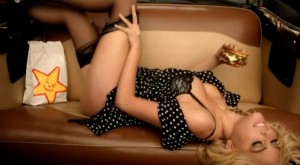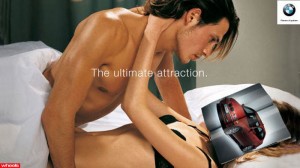Today, the 27th of January, both women’s groups, The Sexual Violence Group, and the Media Group, went to the Payley Center for Media to attend a lesson that was given by a very nice woman named Rebekah. The lesson was on how women are portrayed in the media. My group, the Sexual Violence Group, went with the Media Group, because how women are sexual violated and abused, can often connect how they are portrayed in the media. Often times in adds women are used as objects, or as accessories, especially in adds for men. As soon as we took our seats in the room where Rebecca would give the presentation, she dove into the topic of media, and how women are constantly portrayed as weak people who need saving, or as a sexual desires, for men. Girls that are even as young as toddlers are being told how women are supposed to act and look like. For example, disney princesses always play the damsel in distress role, and they all have the same body; small waist, big boobs, amd big hips. Lots of princesse’s outfits are pink and sparkly, and in almost every single princess movie, the princess needs to get married at the end, so she can be happy, explaining to girls at a very young age that the only way they can get their happy ending, is my marrying a handsome man. Another perpetrator is Lego, and Barbie. Barbie has a physically impossible and unachievable body, and all Legos that are made for girls, are pink, and usually partly pre-made.
Although media is bad at displaying positive images and messages for young girls, it gets worse as girls grow older. On TV, now, girls (who are similar ages with the girls who are watching the show) are supposed to play the good girl next door who’s an angel, but also, be a hot mess. 80% of fourteen year old girls think they’re fat, and part of the reason why, is because poster, magazines, and add campaigns which are all surrounding young girls, are all selling the ideal look of “perfection” rather than the thing they are trying to sell. Through ages 12-14 for young girls, the majority are convinced they’re fat, and their self esteem disappears. Society is obsessed with celebrities, and because of this, youth today tried to make themselves look like the celebrities everyone is obsessed with. The majority of girls and women want to see “normal sized” women in magazines, but still, magazines refuse to allow it. Self harming and eating disorders are all results of how women are portrayed in the media. Rebecca said, “The lower self esteem you have for yourself, the more stupid things you do to yourself.” She also said, “The more we become critical of celebrities or models, the more we become more critical of ourselves.” Rebecca spoke how she hoped that the next generation will provide more realistic images for magazines and TV in the future. Then, Rebecca asked us if there are any girls in the media we connected to. We started saying how it would be hard to create one character that appealed to the whole audience. One of us said that Kaniss, from the Hunger Games series, was relatable. After digging deeper into the actual story, we realized that even at the end when Katniss won, one of her main concerns were which boy she should date, because two attractive boys are fighting over her. We changed the subject to “chick flicks”and how in most chick flicks, are simply movies about women. Just the name “chick flick” sounds so weak and flimsy. So if all movies about females are weak and flimsy “chick flicks” what’s does that make people think about all women?
After we spoke about women in the media, and the affects it has on young girls today, we saw a montage of TV clips that showed different ways girls were portrayed in the media. The montage included clips from Veronica Mars, Brady bunch, a Bratz commercial, Adventure Time, the Power Puff Girls, and a commercial of a game called Girl Talk. Veronica Mars, the Power Puff Girls, and Adventure time were all positive examples of how women are portrayed in the media. Out of all the clips, I think one of the most upsetting was the Brady Bunch clip. In this clip one of the daughters (Marcia) is interviewed by a newscaster and shares that she thinks women should get the same rights and opportunities as men. Her father replied to seeing her on the TV by saying “Kids are so funny with their big, crazy ideas.”
This fieldwork didn’t end up relating completely to our topic to Sexual Violence, but all women’s issues are affected by the others, so it was interesting to see how media can often relate to sexual violence. Below I added tow examples of adds that connect to sexual violence, and how women are often dehumanized and used as objects for pleasure.








1 comment for “The Payley Center for Media”